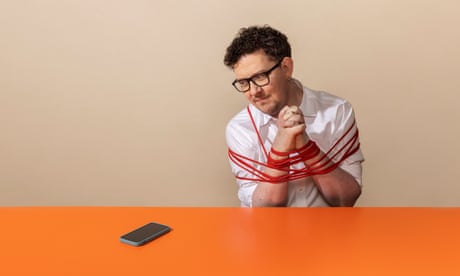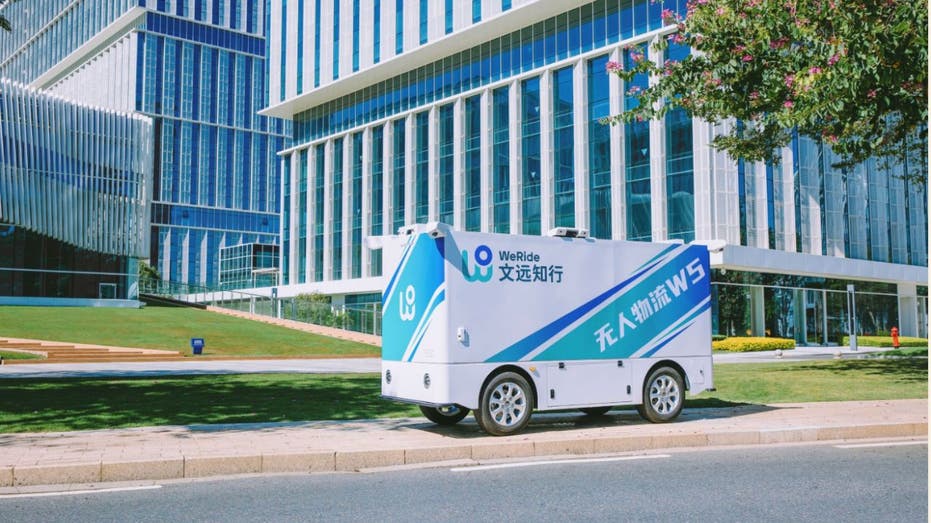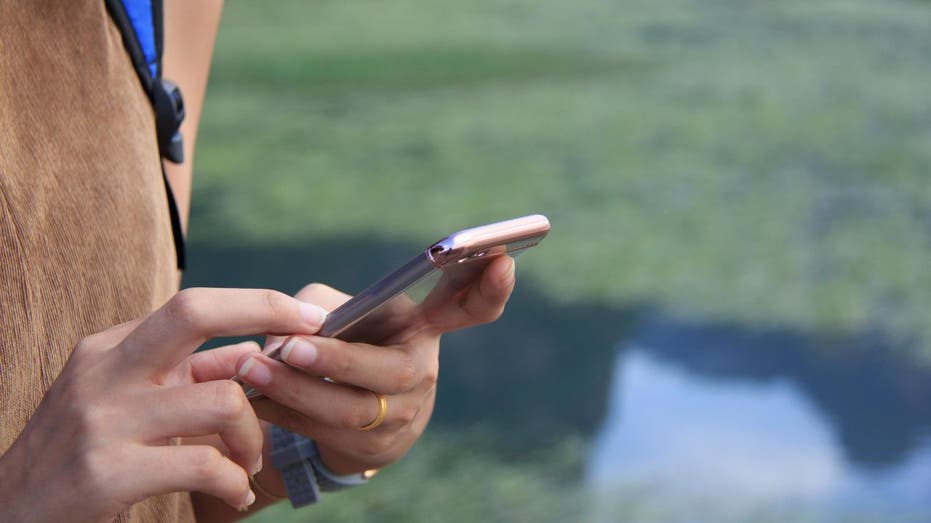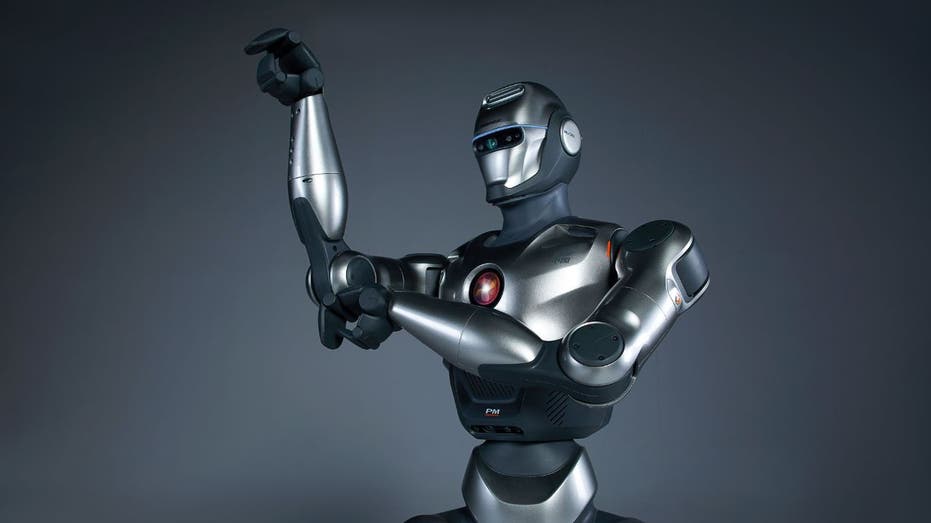- by foxnews
- 10 Mar 2025
Two weeks, no smartphone: how I tried - and failed - to kick my screen addiction
Two weeks, no smartphone: how I tried - and failed - to kick my screen addiction
- by theguardian
- 01 May 2022
- in technology

One Monday morning early this year, bleary-eyed and getting ready for work, I am interrupted by a notification on my phone: an Apple Screen Time alert, informing me my usage last week was up by 60%: to 19 hours 24 minutes a day. I stare at the numbers for a while. Anyone who gets the recommended eight hours' sleep is awake for just 16 hours a day - I apparently spent several hours more than that using my phone. I share a screengrab with friends, who react with concern, if not much surprise.
That I am a heavy phone user hardly comes as a shock to me, either - I work as an editor at an investigative journalism organisation on a team of more than 20, I have a second job as a columnist and I spend more time on Twitter than is good for anyone's sanity. Being glued to my phone is virtually a career necessity, even if I am guilty of spending an excessive amount of time on the game Tents and Trees, too.
Even so, 19 hours seems like overkill - and so it turns out. A careful search of Apple support forums reveals there has been a glitch in its time online feature that has in some cases dramatically inflated the numbers.
I make an adjustment for that, but the real figure isn't much better: around nine hours a day. Over the previous week I've had no fewer than 3,845 phone notifications (760 on one day) and have unlocked my phone 1,635 times - 414 on one day, or around once every 3 minutes 28 seconds. (On an iPhone, all these statistics can be found under Screen Time in the settings menu.)
Perhaps, I tell myself, a bit of a break from my smartphone is in order. I decide to put it aside for a while, to see how I will cope.
First, I set some ground rules. I don't want to lose my job, so I make sure I'll still be able to access the internet and all its functions via laptop, provided I use it only at home or in the office. I can buy a dumb phone - I choose a Nokia 105 (about £20), featuring a colour screen, FM radio, flashlight and one game, Snake, but very little else - and for two weeks will use nothing but that.
During that period, I'll talk to experts and see what they think. What's it like for the heaviest of heavy phone users to go cold turkey? One school of thought suggests I'll feel more in the moment, more observant, more connected to the people I'm physically with.
On the other hand, I think Snake will get boring quite quickly.
I decide to test the waters by doing a trial day - I am still carrying my smartphone, but it has no sim card and is on airplane mode. I have my trusty new Nokia 105 up and running. It's less than a third of the size of the iPhone and at most a quarter of its weight, and draws an admiring comment from a friend: "Have you bought one of those phones designed to be smuggled into prisons up someone's arse?"
I realise I honestly don't know the answer to that question, so promise to address it. In the meantime, I check my disconnected smartphone roughly four times in 30 minutes. My friend asks if he's boring me.
My first day is almost too easy, as I don't actually leave home. So I decide to get answers about whether my Nokia is indeed a prison phone. I get in touch with Chris Atkins, author and producer, who served just under 30 months for a film-finance tax fraud.
My phone, I quickly learn, would not have passed muster during Atkins' time inside. The favourite was the Zanco Tiny T1, smaller than a 50p, with almost no metal parts; Atkins says it was known as the "beat the boss" phone, the "boss" being a sit-on metal detector used in UK prisons.
But most people, Atkins tells me, just used a smartphone, easily acquired from a fellow inmate with a "friendly" relationship with a prison guard. "Very few were used to direct criminal activity," he says. "It's more that lots of people in jail are quite young and they use social media to connect with family, friends and girlfriends." Even prison, it seems, is no refuge from phone addiction - but perhaps it shouldn't be. With prisoners often moved to facilities miles from home, and with visitation dramatically curtailed during the pandemic (as Atkins' excellent podcast A Bit of a Stretch details), surely some connection between prisoners and their loved ones is good for all of us?
On my first phoneless morning commute, I confirm my suspicion that Snake is less fun than I remembered. Also, I manage a high score of only 12 on a nearly 30-minute train ride. No smartphone doesn't just mean no social media, but also no (online) newspapers, no podcasts, no audiobooks, no music. For the rest of the experiment, I resolve to carry a book.
My first real social outing: I'm with friends who work in the music/entertainment business, and the pub is crammed, so we're sharing a big table with strangers. For reasons unknown, conversation turns to the collective noun for a group of horses - is it a pack? A herd? A flock? Realising I have no way of finding out, my friends keep me in the dark all evening. (I look this up on Google when I get home - it turns out it's a "stud" if it's a group of males kept for breeding, a "string" if it's racehorses, or a "team" or "harras" otherwise. Who knew?)
Back in the pub, I spot the identical twin of my phone on the table - one of the strangers is using a Nokia 105! We should find out whose it is and get a picture of us together, I suggest. A savvier friend thinks this might be a bad idea. Cheap, small, no wifi or 3G - my phone is apparently the perfect burner for the busy drug dealer on the go. My friend firmly dismisses the idea of selfies.
Texting on an old phone is much harder than I remembered. The options are manual entry, where you hit the number 7 four times for "S", or the T9 predictive text system, which doesn't appear to have been updated since roughly 1999. My friends, with their modern phones, send me essays. If they're lucky, they get a "K" in response.
I also discover that the friend who borrowed my bank card last night to buy a round still has it. How do you get home with no bank card and no phone with which to order an Uber? I borrow an Oyster card from my boss and top it up with the fiver I am lucky enough to be carrying.
For the first time, my phone goes off in the office - it's the old Nokia ringtone we know and loathe, but suddenly feel oddly nostalgic about. This causes quite a stir. I also explain to my colleagues that because modern phones store their contacts in their own memory and/or the cloud, there is absolutely nothing saved on my Nokia's sim card, meaning I am doing an honest "new phone, who dis" for every new person to call or text. Seconds after I finish this explanation, my phone rings. I politely answer, to a fit of giggles from a colleague, who has just given me my first prank call in at least 20 years. Wonderful.
The halfway point of the experiment. So far, there have been some positives - it has given my friends no shortage of joy from mocking me, and having no smartphone in my bedroom has markedly improved my sleep, a view supported by the work of the Sleep Foundation, which suggests taking your phone to bed can suppress your body's production of sleep-inducing melatonin. But that aside, I hate being without my phone. With it, I can share the interesting or dumb things I see or think through the day - it connects me to hundreds of people I know and millions of people I don't, not to mention a full sound system and the sum of the world's knowledge, too. Without it, I am stuck trying to explain why a particular social gaffe was funny to a largely uninterested cat, hours later. I am not sure why the latter is more authentic than the former, if I am honest.
I am in an almost deserted pub with a friend, getting ready to travel to a birthday party. When my Nokia ringtone sounds, it is conspicuously loud. The bartender quickly reassures the room: "Oh yes, sorry, that guy is using a phone from the 1990s for some reason." I decide it's not worth trying to explain. And there is worse to come: at the birthday party, my friend Duncan declares he's really missed Snake and could he have one go? The bastard immediately sets a new high score of 89.
Starting to feel as if I'm getting into the rhythm of this, I head to another friend's birthday party, near London's Waterloo station. When I get there, I am pulled up short as I realise I have absolutely zero idea of where the party is. I haven't had to worry about directions, or carrying an A-Z map, for a decade. The spur-of-the-moment decision by my friends to nip "round the corner" leaves me wandering the area for more than half an hour until I bump into someone I know.
It serves as a reminder that life is increasingly difficult for anyone shut out of the smartphone world. Around 16% of UK adults are in this position, but this rises dramatically with age: 23% of adults aged 55-64 have no smartphone, increasing to 47% of over-65s. The more it becomes an expectation of how we socialise, or how we get into venues (with Covid passes, or event tickets, for example), how we bank or pay bills, the bigger the cost for those unable or unwilling to get one.
Time to speak to the phone addiction expert: Dr Anna Lembke, who is chief of the Addiction Medicine Dual Diagnosis Clinic at Stanford University. She tells me that phone addiction is real - both because of the nature of the devices and because they are a portal to addictive pastimes such as pornography or gambling. "As with any drug, the vast majority of users won't get addicted, but a small subset - 10-15% - will run into trouble and potentially get seriously addicted," she says.
What, I ask, are the negative effects of such an addiction? "Less joy in modest pleasures that used to give us joy," she says. "Mental preoccupation with the phone, and heightened distractibility and reactivity. Decreased ability to be present in the moment."
I can't quite separate some of these from the basic reality of living in 2022 or, if I'm honest, from my own nature. I do constantly find myself checking my phone - and more than 10 days in, am still missing it - but is that down to my phone, or me being someone who constantly wants to know what's going on, not just in the wider world, but in my world? I'm honestly unsure.
I find myself wondering about Lembke's own phone use. Is she a sneaky devotee? "I am an extreme non-user - I keep it turned off and in my bag 90% of the time."
Lembke has one particularly stark tip for people who want to change their relationship with their phones: change your number (if necessary) and then don't give it out, and don't have your phone on when you're not using it. She does this herself - effectively turning her phone into a send-only device. "Since my phone doesn't receive, I'm not mentally preoccupied with checking it," she says. This strikes me as very good advice for someone, but that someone probably isn't me. And what if someone needs to contact her in an emergency?
In the meantime, I have missed about 12 WhatsApp calls on my laptop from a close friend and neighbour. The last message from him reads: "Your lack of phone is getting very annoying for me."
Lembke's comments are still troubling me, but also don't tally with my personal experience - I am clearly a very heavy phone user, but I feel far more anxious and stressed without it than with it. Is it possible to be a heavy user without being an addict, or it having a detrimental effect on your life?
I talk to neuroscientist and author Dean Burnett, who starts by agreeing with Lembke. "There are undoubtedly cases where people become overly reliant on their phones and experience negative behavioural changes as a result," he says. "But these seem to be extreme cases." The key point, he adds, is how you feel: is your phone use causing you distress, or coming at the detriment of the rest of your life? If not, then you're not a problem user.
Burnett uses the example of drugs to sketch out what for him is a crucial distinction: that between addiction and dependence. "These are neurologically different things - someone who is in a lot of pain who regularly takes powerful opiates isn't necessarily an addict, and need not become one.
If you're already in a lot of pain, painkillers are essentially undoing a negative change - you get dependence, not addiction."
In my case, Burnett suggests, the right term might be not addiction, but dependence - for me, my phone isn't creating a need, but fulfilling an existing one. This I can live with. I really want my phone back.
With the end in sight, I am practically skipping through the day. I can see positives I haven't before. I have only had to charge my phone three times in a fortnight. It's so light and cheap that I can throw it at friends who have taken the piss out of it.
As the fortnight has progressed, I have largely stopped texting - cutting myself off from even this permissible means of communication. A two-word reply can feel like an insult - and explaining why it was brief requires another. But, elated at the thought that I get my actual phone back tomorrow, I dash off a T9 text to a colleague: "Sounds good vag." Turns out no one updated the T9 dictionary to include "tbh" as a conversational tic. Virtual keyboards didn't come along a moment too soon.
So what have I learned? That I use my phone too much and that's fine? Or not fine, but I'm too dependent to do anything about it? Oddly, almost everything I missed was practical rather than fun: maps, Google, the ability to quickly check for an email or send a short note. But I found myself feeling increasingly isolated - and unusually aware that I live alone (a situation I generally love). As much of our lives atomise, community comes to mean something new and more of us work remotely, what's wrong with constantly staring at something that renders distance no object to having a relationship?
My friend Jasper brings me back to earth with something of a thump. "Is this supposed to be representative of what normal people would go through without a phone? Because you're different, James," he says, as I wait for the next sentence. "Not everyone needs to tweet every five minutes."
But it turns out I do. And, in a few short hours, I can. All hail the smartphone.
By Dr Anna Lembke
1 Go on a digital fast Don't touch your phone - or any screens - for 24 hours. The aim is to interrupt your physiology and reset dopamine reward pathways. In truth, 24 hours is probably not enough, but it may make you realise how addicted you are.
2 Optimise your chance of success by setting a date and time for going cold turkey. Tell people you'll be out of contact and make plans for what you'll do in this time. Trust me: it will feel very long. Time slows when we stop chasing dopamine.
3 Anticipate the symptoms of withdrawal: anxiety, irritability, insomnia, dysphoria, craving. Just know these are time limited and with continued abstinence will lessen or go away entirely.
4 When you get intense cravings to check your phone, take a cold bath, do 50 push-ups or clean the closet. In other words, rather than switch addictions to something else that makes you feel good, invite pain as a way to reset the balance.
5 When the fast is over, plan how to reintegrate digital devices without letting them take over your life. Write down the ways your fast made you feel better and keep it with you; make a list of what you plan to do and set a time limit; use strategies such as turning off alerts and deleting apps.
- by foxnews
- descember 09, 2016
Ancient structure used for cult 'rituals' discovered by archaeologists
A Neolithic Timber Circle was discovered by archeologists in Denmark resembling the historical landmark Stonehenge in the U.K. It is open to be viewed by the public.
read more





